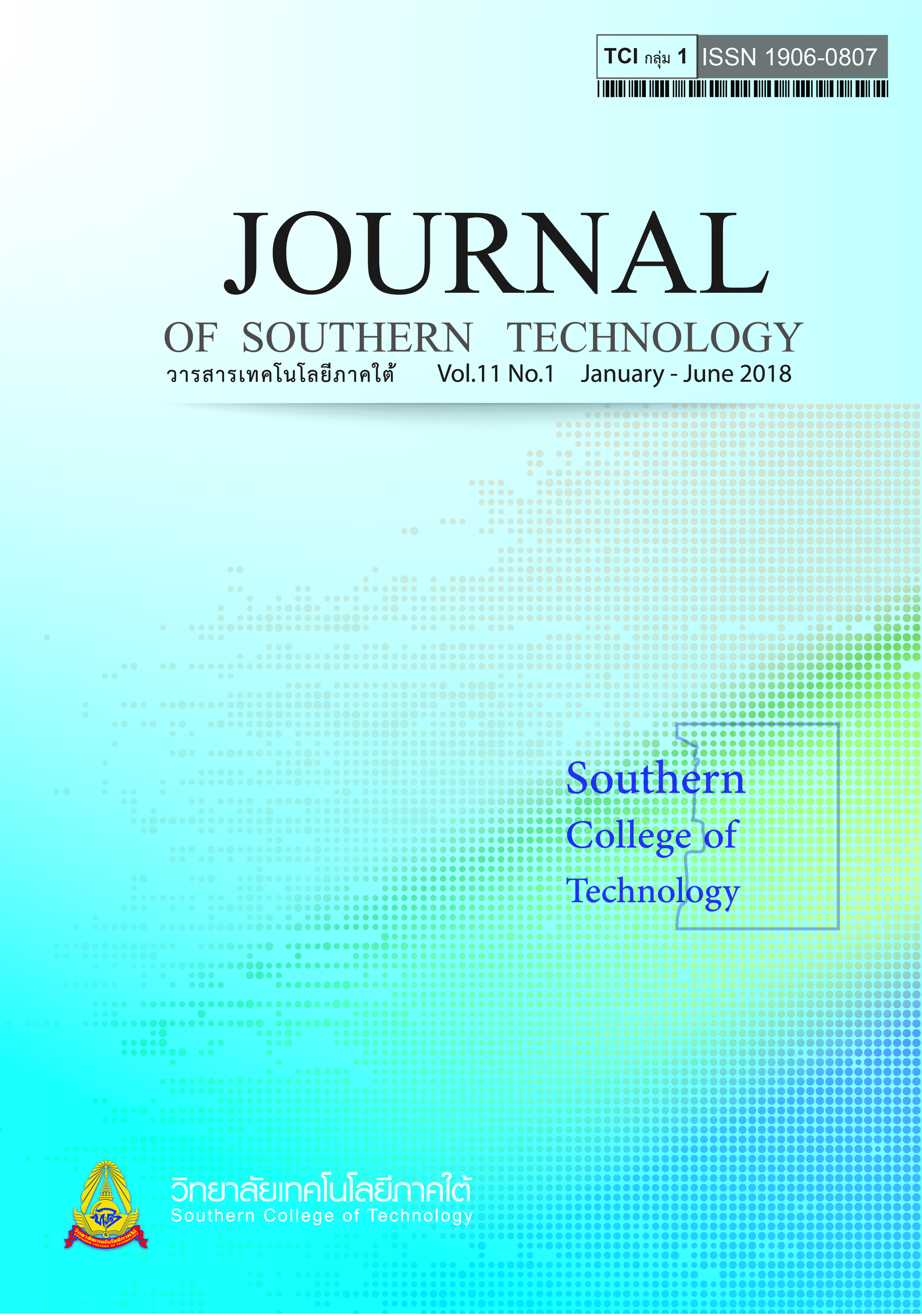The Model of the Causal Influence Factors of Campaign to Promote Drinking Tap Water in Bangkok
Main Article Content
Abstract
The objectives of this research were to build the model of the causal influence factors of campaign to promote drinking tap water and to verify reliability between the model and empirical data. Therefore, this research contains two fundamental methodologies including 1) built the model of the causal influence factors of campaign to promote drinking tap water and 2) verified compatibility between the model and empirical data. A sample of water consumers from the Metropolitan Waterworks Authority in Bangkok area were calculated using Yamane Formula. Self-administered questionnaire was used as data collection method and data described by descriptive statistics including arithmetic mean, standard deviation, correlation and inferential statistics including confirmatory factor analysis, and path analysis using LISREL.
The research results showed that 1) Factors influencing the model of the causal influence factors of campaign to promote drinking tap water contain; promoting campaign, perception of water consumption, and affected conditions toward drinking tap water. 2) The model was reliable with empirical data, as in; Chi-square=65.62, df=29, P=.00012, RMSEA=.056, /df=2.26, GFI=.97, AGFI=.93, and CFI=.99. Hence, the aforementioned factors had various effects on campaign to promote drinking tap water as follows: 1) Promoting campaign factor, the effects were arranged in descending order including campaign strategy, campaign data, campaign objective, and campaign channel. 2) Perception of water consumption factor, including social factors, physical characteristics of tap water, and subjective knowledge. 3) Affected conditions toward drinking tap water factor, including acknowledgment of quality control in tap water, acknowledgment of water production processes, desire of decreasing cost of buying bottled water, and acknowledgment of tap water quality is guaranteed by World Health Organization.
Article Details
-
Authors must agree to the journal publication rules and allow the editors to edit the manuscripts for publication.
-
Author’s right belongs to the author but Journal of Southern Technology holds the right of first publication and thus allow readers to use the article for the purpose of education but not commercial.
References
Borin, N., Cerf, D.C., & Krishan, R. (2011). Consumer effects of environment impact in product labeling. Journal of Consumer Marketing, 28(1), 76-86.
DePoy, E., & Gilson, S.F. (2012). Human Behavior Theory and Applications: A Critical Thinking Approach. London: SAGE.
Fill, C. (2002). Marketing Communications: Contexts, Strategies, and Applications. New York, NY: Financial Time Prentice Hall.
Glass, G. V., & Hopkins, K. D. (1995). Statistical Methods in Education and Psychology. Upper Saddle River: N.J: Pearson Prentice Hall.
Harrell, G. D. (1999). Marketing: Connecting with Customers. Upper Saddle River, N.J.: Prentice Hall.
Jeeravorawong, C. (2015). Attitudes subjective norms and the involvement product affecting the intentions to buy the green products. Songklanakarin Journal of Management Sciences, 32(1), 65-90. [in Thai]
Kotler, P. (2009). Marketing Management. Upper Saddle River: N.J: Pearson Prentice Hall.
Likert, R. (1974). A Technique for the Measurement of Attitude. In G.F. Summer (ed.). Attitude measurement. New York: Rand Mcnally.
Metropolitan Waterworks Authority. (2013). Water Safety Plan Project Metropolitan Waterworks Authority. [in Thai]
Rawal, P. (2013). AIDA Marketing Communication Model: Stimulating a purchase decision in the minds of the consumers through a linear progression of steps. IRC’S International Journal of Multidisciplinary Research Social & Management Sciences, 1(1), 37-44.
Sattayopat, P. (2015). The Casual Effect Among Entrepreneurial, Marketing Capabilities, Innovation and Business Strategy toward Competitive Advantage of Small and Medium Enterprises in Lanna of Thailand. Ph.D. Dissertation (Management), Lampang Rajabhat University. [in Thai]
Schiffman, L., & Kanuk, L. (2010). Consumer Behavior. (10th ed.). London: Prentice Hall.
Suksawang, P. (2014). The basics of structural equation modeling. Princess of Naradhiwas University Journal, 8(2), 136-145. [in Thai]
Sven, W. (1992). Using Communication Theory: An Introduction to Planned Communication. London: SAGE.
Tosa-nguan, S. (2008). Perception and usage of e-procurement in public sector to official in the Office of the Permanent Secretary Ministry of Natural Resources and Environment. M.A. (Communication Arts) Thesis, Dhurakijpundit University. [in Thai]
Wongmontha, S. (1997). Integrated Marketing Communication. Bangkok: Diamond in Business World Press. [in Thai]
Yamane, T. (1970). Statistics: An Introductory Analysis. Tokyo: John Wetherhill.

